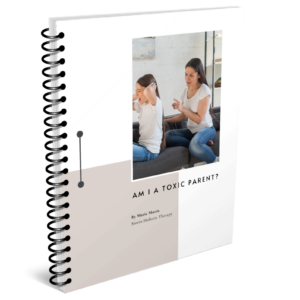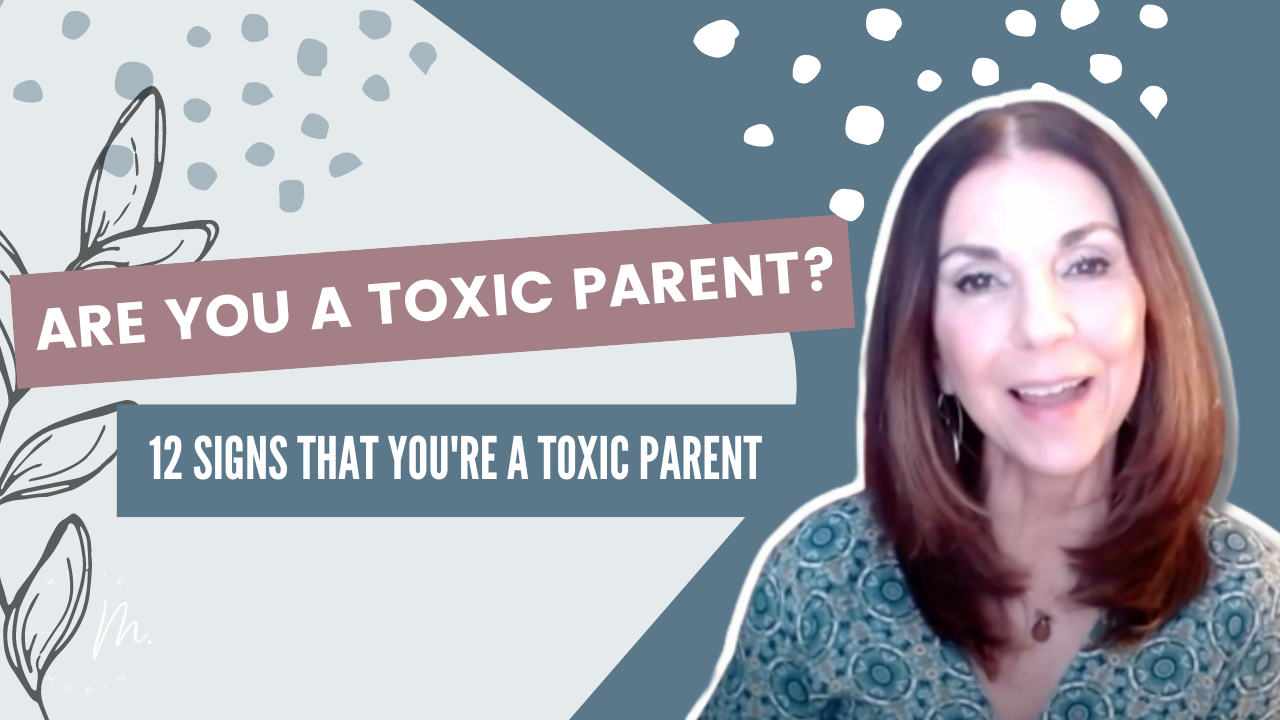Are you a toxic parent? Twenty-seven percent of American adults are cut-off from their families and do not speak to them. Estrangement and its emotional aftermath are likely more common due to the stigma attached to problematic family relationships.
If you’ve been told you are toxic, your adult child has tried to communicate their view of your relationship. To improve your chance of reconnecting, adult children need to know you have changed. This article discusses Twelve Signs You Are A Toxic Parent When Your Adult Child Won’t Speak To You.
Straight Talk on Toxic Behaviors
Estrangement is more than ambiguous, averaging 4.5 years in length, but also complex. Parents and adult children harbor and recall distinctly different views of events. Estrangement factors include divorce, parental alienation, substance use, mental illness, differing values, and lifestyle impact cut-off decisions. Estranged individuals, especially when there are toxic behaviors due so to self-preserve. The emotional toll is enormous for both the estranger, the adult child, and the strange, the parent.
Parents and adult children feel the enormous void of family disconnection. Family bonds are essential to security and emotional well-being. It is usual for parties to desire resolution. Parents, specifically, are more invested in reconciling. Adult children who have experienced toxic parenting require emotional support and assurance that their parents have changed. Considering all the many facets of estrangement, parents desiring reconciliation benefit from reflection, taking responsibility, and transforming.
Is Reconciliation Possible?
For reconciliation to occur, parents aim to validate their adult child’s perspective. Also, genuinely offer a nonjudgmental opportunity to air their adult child’s grievances. Your reconciliation effort will fall on deaf ears if you expect your adult child to hear your viewpoint and agree. According to Karl Pillemer, author of Fault Lines Fractured Families and How To Mend them, family members who desire to reconnect will abandon the need for an apology and be right. Adult children require toxic parents to transform their behaviors intentionally.
Twelve Signs Of A Toxic Parent
- Parents who act superior to their children and are disrespectful to them. Parents who consistently proclaim their rights as parents. They denigrate their adult child’s needs for respect.
- Parents that disrespect their adult child’s privacy. Parents who disclose their adult child’s private information with others without permission. Parents who do not respect the adult child’s need for personal space.
- Parents hold excessively high expectations and are dissatisfied with their adult child’s decisions or choices. Consider parents who typically expect their kids to do more without understanding their child’s preferences or personal needs.
- Parents with controlling behaviors. Adult children deserve the right to choose who they socialize with, how they spend their money, home location, and work. Controlling parents have the final say in their adult child’s business.
- Manipulative parents don’t keep your promises. They may motivate by guilt, tears, or withholding of money promised when they are displeased.
- Exploding in angry fits is a sign of toxic parenting. Emotional dysregulation, explosive shows of anger, and disappointment are harmful to adult children.
- Toxic parents are selfish. Parents who think more about what benefits them and not their children are toxic. These parents are not thinking of the benefits to their adult children and what is important to them.
- Unapologetic parents. Typically, toxic parents refuse to take responsibility for what they have done or said. They may also shift the narrative to appear as the victim.
- Toxic parents will blame their kids for their problems. They may outwardly profess that the cause of their parental hardship is because of the adult child’s maltreatment and failures.
- Unsupportive parents are toxic. Adult children report that unsupportive parents negatively assess their adult child’s goals and dreams. They are not supportive of their adult children’s happiness, lack encouragement, and – negatively comment about their actions.
- Toxic parents are often, if not always, critical. Adult children state that their parents respond with hypercritical comments, negatively perceiving what and how their children live.
- They are unappreciative of their adult children. Toxic parents do not say thank you and often allude to their children having a duty to do for their parents.

Am I a Toxic Parent?
TAKE THE QUIZ!
Fill out the form below to let us know where to send your quiz:
Perspective Taking
Interestingly, parents and adult children have extraordinarily different perspectives of childhood and adolescence. Many parents cry foul over accusations that they were toxic. The gap between the versions is due to understanding the adult child’s take on their stressors and struggles and how it relates to their interpretation. According to Joshua Coleman, author of Rules of Estrangement, part of this trend focuses on parental responsibility for the adult child’s outcomes. In other words, parents are likely to be blamed for their child’s misfortunes.
While not every estrangement is due to toxic parenting, harmful parenting exists.
Research reports that hundreds of thousands of children are victims of maltreatment every year. Toxic behaviors are consistent and predictable. Parents who have occasionally exploded and criticized their children do not qualify as toxic parents. The critical distinction requires parents and children to assess their shared experiences objectively.
With rising rates of mental health conditions, exploration of primary relationships renders parental behaviors suspect to extreme scrutiny with good reason. Children raised in a toxic environment suffer psychological harm. Repeated encounters with a family member who is overly reactive and self-centered, consistently disapproving, and discouraging are damaging to the developing personality. Likewise, parent’s that are disrespectful of boundaries, manipulative, and refuse to assume responsibility for their actions impact their adult child’s emotional well-being.
For the parent who may have experienced “toxic behaviors” as they grew up, their tolerance of acceptance, duty, and obligation to their parents superseded decisions to cut off. This complex story of parents and adult children divided due to historically tense and often unbearable conditions leaves all parties in a murky state of disconnection of family bonds. Research reports that lack of family support is responsible for depression and chronic illness.
Your adult child’s personality and maybe a low tolerance for sporadic “toxic” behaviors can inform your estrangement condition. Abuse victims need to separate from their abusive families. They can experience trauma and difficulty with emotional regulation. Children raised in the same household can respond differently to less than the best parental behaviors. Toxic parenting can be perceived as abuse.
Conclusion
Parents are imperfect, and it is normal to have conflict in parent-adult-child relationships.
The behaviors of Toxic parents are consistent, frequent, and problematic for the adult child.
If your adult child has said you are toxic, knowing their perceptions and examining your history with them will bring insight. Awareness of past and recent behaviors will illuminate what might have gone wrong. This article discusses Twelve Signs You Are A Toxic Parent When Your Adult Child Won’t Speak To You.
Resources:
Agllias, Kylie. Family Estrangement A Matter Of Perspective. New York, Routledge, 2017.
Coleman, Joshua. Rules of Estrangement. New York, Harmony Books, 2020.
Morin, Marie. Feeling Heartbroken and Alone? How to Pick Up the Pieces When You are Estranged. eBook. 2022.
Morin, M.L. [Morin Holistic Therapy]. (2022, January 4 ). What is Family Estrangement? You Are Not Alone.
Morin, M.L. [Morin Holistic Therapy]. (2021, September 8). Diaphragmatic Breathing: 5-Minute Deep Breathing Exercise for Beginners.
Morin, Marie. How to Deal with Estranged Family During the Holidays (2021, November 21) Sixty and Me. https://sixtyandme.com/estranged-family-holidays/
Pillemer, Karl. Fault Lines Fractured Families and How to Mend Them. New York Penguin Random House, 2020.









